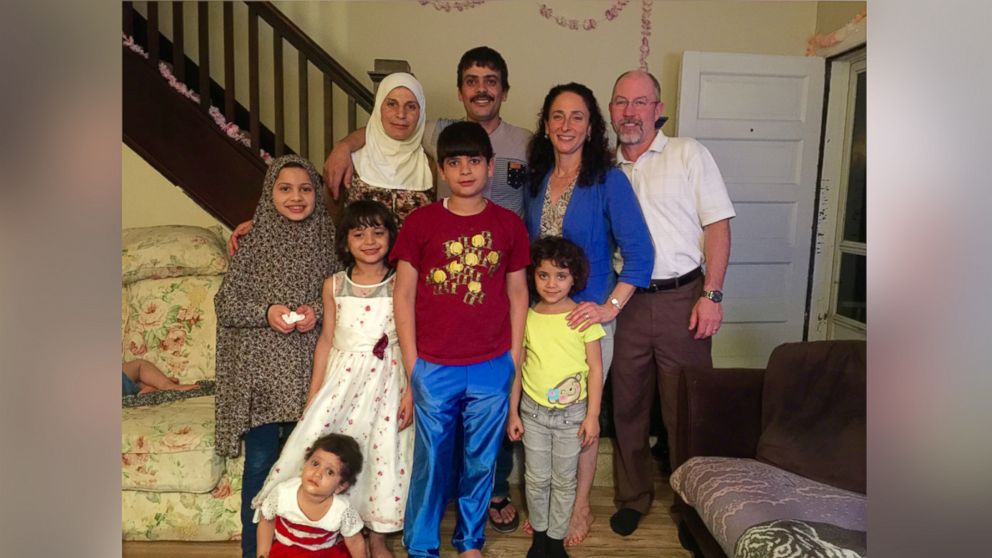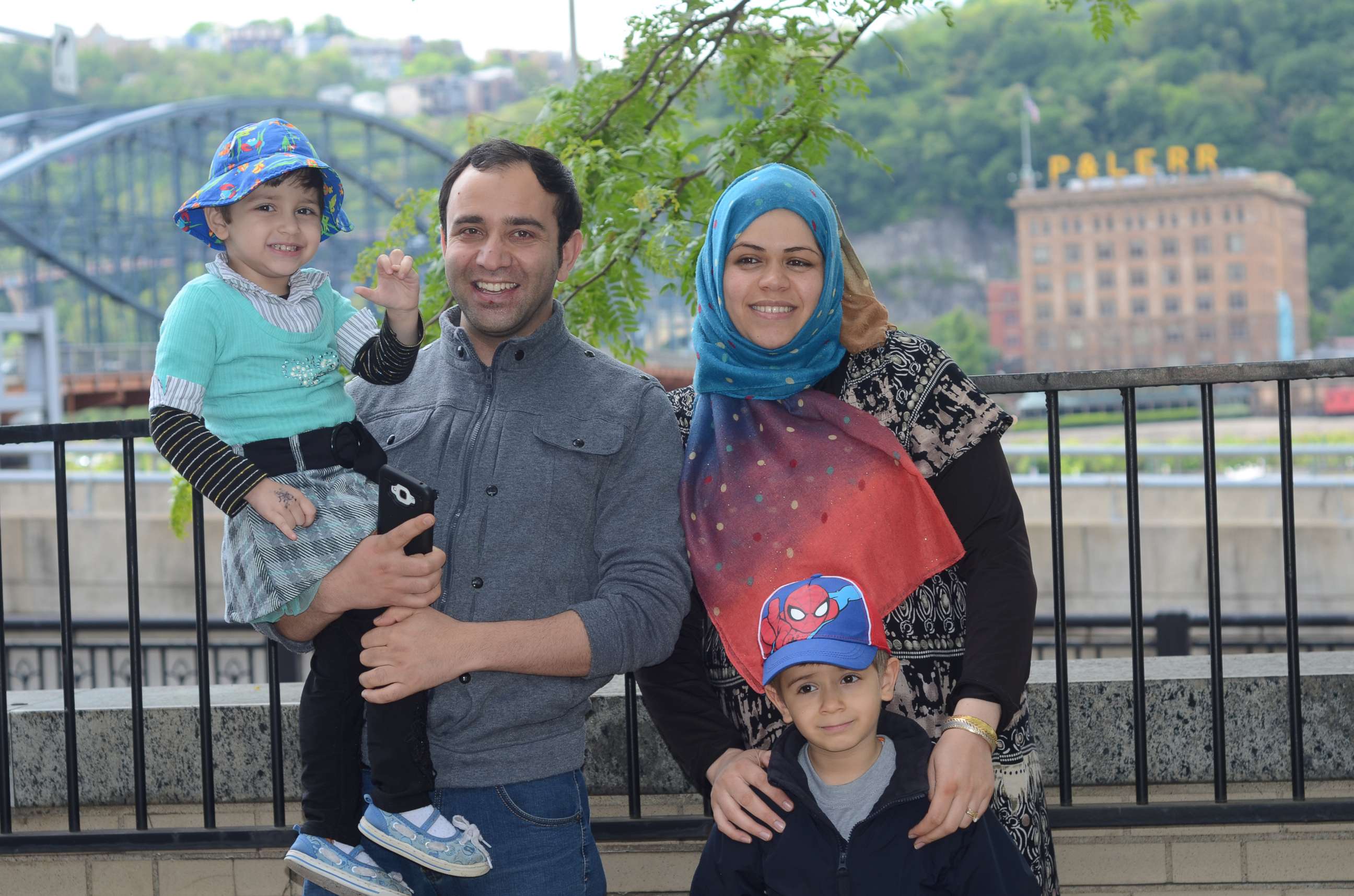Pittsburgh program pairs refugees with local families to navigate American life
"This was like seven ready-made grandchildren," Clea Angell told ABC News.

— -- When Abdulaziz and his wife, Sabha, arrived in Pittsburgh from Syria more than a year ago, they already had their hands full with six children and another on the way -- and they were navigating a whole new country.
They had to enroll their children in school, find work for themselves and learn the public transportation system, all without speaking much English. Life in the U.S. was incredibly hectic at first, they said.
Then they met Clea and Tom Angell through Hello Neighbor, a nonprofit that pairs refugee families with other local families to help them adjust to American life.
Under Trump's new refugee ban, nearly half of refugees still blocked
A Syrian Refugee Family Begins Again in California
"This was like seven ready-made grandchildren," Clea Angell told ABC News.
The Angells even met Abdulaziz and Sabha's new baby in the hospital when he arrived, she said.
"I was touched that she sent me a picture of him right after he was born. That's very sweet," Clea Angell said.
Tom Angell said the families had gone to the playground and the zoo together and taken boat rides. He said the fact that neither family speaks the other's language had not stopped them from forming a strong bond.
"I think probably one of the things that would surprise me is how little we actually speak in the hours that we spend together," Tom Angell said. "We spend a lot of time together."
"We love them so much," Sabha, who asked that the family's last name not be used, told ABC News through a translator. "We fell in love with them."
Hello Neighbor was started two years ago by Sloane Davidson, who decided to move back to Pittsburgh from New York with her husband while she was pregnant to be closer to family.
"I looked around at refugees and realized they leave everything behind in search of a better life and leave their support systems and leave the communal living that they were a part of," Davidson said.
So, about a year ago, she signed up for a program that paired U.S. families with refugee families for Thanksgiving dinner. She brought a Syrian family to her family’s home for the holidays and the evening was great, she said. Afterward, Davidson decided that she wanted to recreate that experience on a larger scale and Hello Neighbor was born.
Davidson said her nonprofit picks up where traditional resettlement assistance for refugees leaves off.
So far, the nonprofit has matched 25 refugee families from Bhutan, Myanmar, Congo, Syria, Iraq, and Afghanistan with 25 families in Pittsburgh for a four-month period. The families commit to at least one in-depth interaction a week and Davidson organizes other get-togethers, from a potluck dinners to Pirates baseball games.
It's in these casual settings that American culture gets passed along: the customs, the food, even the idioms.

When Noorulhaq, Mastoorah, and their three children moved to Pittsburgh from Afghanistan, they relied on their Hello Neighbor family to not only adjust to their city but also to give them an extra boost of confidence.
"It [gave] us a sense, that, not to feel alone anymore," Noorulhaq told ABC News. "If you move to [a] new country, the small things look so big. ... The most important one: to make friends, you know, to make your social life, is very important. How you can make friends, how you can communicate with your community you are leaving and make contact with them. ... This is not easy. ... A-Z, things in life here is different. We don't have one, single similar thing we have in Afghanistan."
Noorulhaq said his Hello Neighbor family had taught him how to use Uber and had helped him to learn basic norms around introducing himself. The couple also asked that their last names not be used.
Recently, Mariam Musai of the Democratic Republic of Congo found her house dark and cold after the power company cut off her lights and heat. Musai had not yet realized how to pay her utility bill.
Her Hello Neighbor mentor, Mary Alice Chaffin, and Davidson, Hello Neighbor's founder, worked over the phone with the power company.
"There's so many little nuances to living here (in the U.S.), our systems, so many small, little things," Chaffin said. "How does that work when a bill comes, you know, and what are the exact steps and when there is a problem, how do you remedy that problem?"
Chaffin's son, Owen, played football with Musai's son, Aaron. When he arrived home, Musai's older son, Gabe, also joined in the fun.
And with Chaffin's help, Musai's daughter, Razia, is studying for her GED. Razia said she wants to work in business administration.
"I've never been tested in my life, in any way, shape or form, as what I only imagine Mariam has to get her family here," Chaffin said. "It's the least I can do and my family can do to help them."
The two women's relationship has lasted well beyond the four-month-long commitment that Hello Neighbor requires.
"It's so beautiful to me. I think of how much faith both families have had [to] put into doing something brand new," Davidson said. "You're meeting someone of a brand-new culture, probably going to a neighborhood you're not as familiar with, on both sides."
"I just couldn't have expected, like, quite the response or the depth of some of the friendships and relationships," she added.
This report is part of the three-hour ABC Radio special, "America Gives Thanks."




